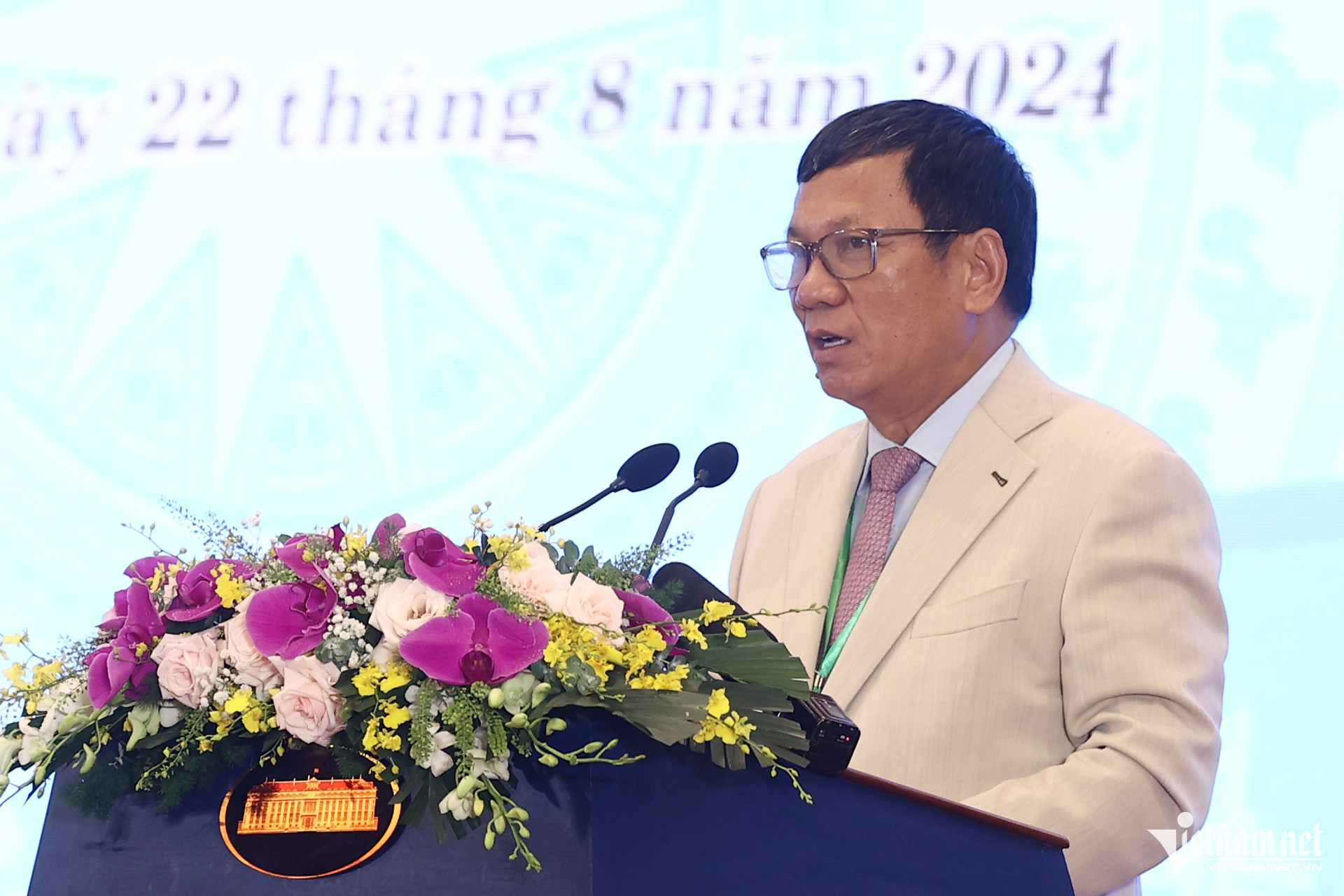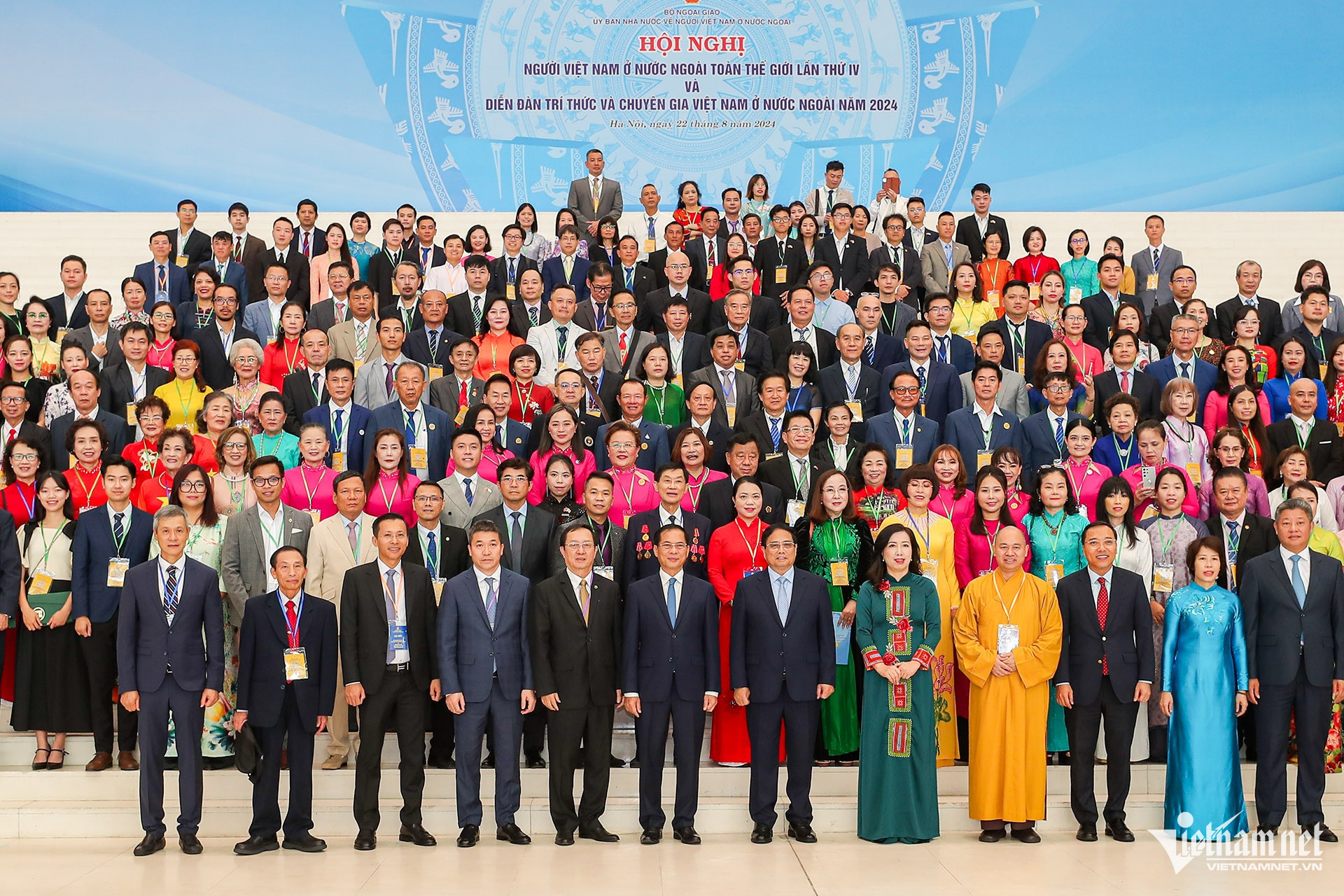
During the Fourth Global Conference for Overseas Vietnamese and the Forum for Vietnamese Intellectuals and Experts Abroad, held on August 22 in Hanoi, many delegates proposed that Vietnamese expatriates be allowed to restore their Vietnamese citizenship while retaining their foreign citizenship, citing significant demand for this policy.
The event, which saw the participation of Prime Minister Pham Minh Chinh, various government officials, and 400 overseas Vietnamese from more than 40 countries and territories, highlighted the need for policies that accommodate the unique circumstances of the Vietnamese diaspora.
In his opening speech, Minister of Foreign Affairs Bui Thanh Son emphasized that past conferences have created important forums for in-depth discussions between the diaspora and domestic stakeholders on strategic issues related to nation-building and the protection of Vietnam. These conferences have effectively become a "Dien Hong Conference" for overseas Vietnamese, contributing to the formulation of policies and laws.
Minister Son pointed out that the Vietnamese community abroad has grown significantly in both size and quality. From about 4.5 million people in 109 countries and territories in 2016, the community now exceeds 6 million across 130 countries and territories. Among them, approximately 10%, or 600,000 individuals, hold university degrees or higher, and many have integrated deeply into their host countries' political systems or achieved recognition in international fields.

Hoang Dinh Thang, a member of the Central Committee of the Vietnam Fatherland Front and Chairman of the Union of Vietnamese Associations in Europe, proposed bold decisions to facilitate the restoration of Vietnamese citizenship for overseas Vietnamese while allowing them to retain their foreign citizenship. He noted that many countries have revised their citizenship policies, prompting Vietnamese abroad to renounce their Vietnamese citizenship to obtain foreign citizenship. Now, many wish to restore their Vietnamese citizenship while retaining their foreign nationality.
"This legitimate desire to maintain a legal connection with the Vietnamese state and pass it on to future generations faces many practical challenges. Despite existing regulations, the actual process is complicated, with numerous requirements and paperwork, resulting in very few successful cases, despite the high demand," Thang said.
He also suggested revising regulations to allow overseas Vietnamese to participate in elections and run for the National Assembly, and expanding the eligibility of overseas Vietnamese associations to become members of domestic political and social organizations.
Johnathan Hanh Nguyen, an overseas Vietnamese from the Philippines and Chairman of the Imex Pan Pacific Group, shared his long-standing connection with Vietnam, dating back to the early years after the country's reunification when he returned to establish the Ho Chi Minh City-Manila flight route, contributing to breaking the embargo. He has since continued to invest in his homeland.
"Over the years, I have seen that now is the best time for overseas Vietnamese to return and do business in Vietnam," he said.
Regarding talent attraction, Johnathan Hanh Nguyen suggested that the government develop strategies to attract Vietnamese students and young expatriates to return for internships, startups, and community projects in Vietnam, helping them reconnect with their roots and bring new ideas to the country.

He also noted a positive trend: "Recently, I have observed many young people returning to Vietnam to start their careers, including those born abroad. This indicates a significant shift of intellect from overseas to Vietnam, especially from countries with advanced technology and economies. In Ho Chi Minh City alone, there are nearly 100 startups and many venture capital funds managed by young overseas Vietnamese."
He proposed that the government implement a sandbox mechanism to allow the trial of new technologies and business models without requiring extensive permits. He highlighted that some young Vietnamese tech entrepreneurs have pioneered innovations globally but face policy barriers when bringing these innovations back to Vietnam.
He also urged the government to make it easier for young overseas Vietnamese to obtain Vietnamese citizenship while retaining their foreign nationality and acquiring ID cards to establish long-term stability in Vietnam.

While Vietnam has made significant progress in digital transformation, Johnathan Hanh Nguyen stressed the need for planning "technology clusters" with modern digital infrastructure in major cities and key economic regions where businesses and tech startups can interact, share knowledge, and collaborate on research.
"We should have special mechanisms to promote technology incubators and venture capital, as these are key elements of the innovation ecosystem that help creators develop new technologies and commercialize them," he suggested.
Tran Thuong
Photos: Pham Hai